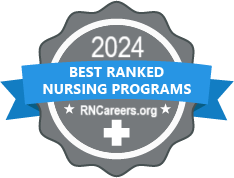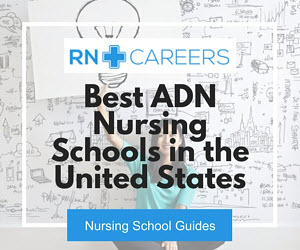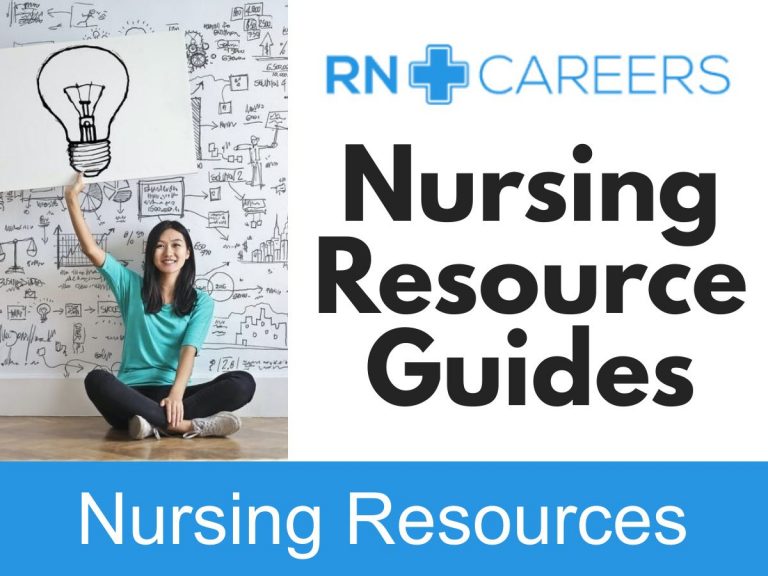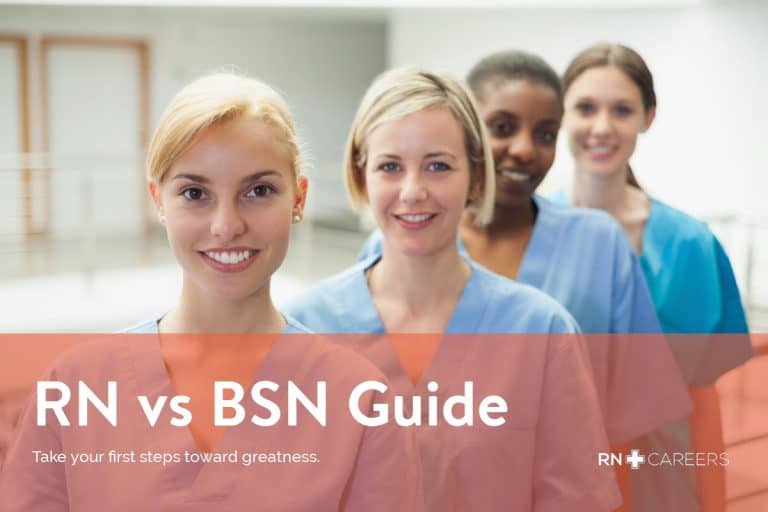How Long Does it Take to Become a Nurse
Have you ever asked “how long does it take to become a nurse?” As you consider launching an exciting and meaningful nursing career, determining the length of nursing education is an important first step.
Nursing school can take anywhere from 1 year for an LPN license up to 8 years for a Doctor of Nursing Practice, depending on your career goals. In this comprehensive guide, we’ll explore common nursing degrees, program options, certification timelines, and more to help you map out your ideal nursing education path.
We’ll cover details including:
- Time commitments for different nursing degrees
- Prerequisites, program lengths, and licensing
- Variations between community college and university
- Full-time vs part-time study options
- Accelerated BSN options for second career seekers
- How experience factors in for nurse practitioner roles
- Tips for choosing your ideal nursing program timeline
Let’s start by looking at the baseline options for becoming a registered nurse.
How Long Does it Take to Become a Registered Nurse?
To become licensed as an RN, there are two main educational routes – earning either an Associate’s Degree in Nursing (ADN) or a Bachelor’s of Science in Nursing (BSN).
According to the National Council of State Boards of Nursing, ADN programs take roughly 3 years from start to taking the NCLEX-RN licensure exam:
- Finish any prerequisites classes – 1-2 years
- Complete a 2-year ADN program at community college
- Sit for national NCLEX-RN exam & licensure – upon graduation
BSN programs generally take 4-5 years:
- Complete prerequisite classes
- Finish a traditional 4-year BSN curriculum
- Take + pass NCLEX RN licensing exam
So for both paths, you’re looking at a 2-4 year timeframe before becoming licensed as an RN.
ADN programs offer clinical skills & basic sciences for nursing care, while BSN includes additional focus on research, leadership, community & public health nursing not covered in ADN curriculums.
How Long For Other Types of Nurses
Before going deeper on ADN vs BSN debates, here’s a glance at timeline estimates for other common nursing roles:
- Licensed Practical Nurse (LPN) – 1 year diploma program
- Nurse Practitioner (NP) – ~6 years (2 years RN experience + 2 years MSN)
- Certified Registered Nurse Anesthetist – ~7 years (1-2 ICU experience + 3 year CRNA program)
- Average for ADN to RN – 3-4 years
ADN vs BSN Degrees: Key Differences
Associate’s Degree in Nursing (ADN)
Associate’s Degree in Nursing (ADN) programs are typically offered at community colleges, take 2-3 years to complete, and include courses in:
- Fundamentals of Nursing
- Adult Health/Medical-Surgical Nursing
- Mental Health Nursing
- Maternal-Child Nursing
- Anatomy and Physiology
- Microbiology
- Nutrition
- Psychology
Upon completing an ADN program and passing the national NCLEX-RN licensing exam, graduates are eligible to apply for RN employment opportunities in their state.
Bachelor of Science in Nursing (BSN) Programs
For those aiming for greater advancement opportunities down the road, a Bachelor of Science in Nursing (BSN) can provide additional value beyond an ADN.
Traditional BSN programs take 4 years and are offered at universities and 4-year colleges.
The curriculum expands upon clinical nursing competencies covered in an ADN program to also include coursework focused on:
- Research
- Nursing leadership
- Community & public health nursing
- Health promotion across populations
- Nursing management
Many employers are now requiring new RN hires to hold a BSN degree or allowing them a grace period to enroll in a “RN to BSN” completion program within a timeframe after joining. We’ll explore those RN-to-BSN options a bit later as well.
First, let’s take a closer look at accelerated BSN options which are growing in popularity.
Accelerated BSN (ABSN) Nursing Programs
Accelerated BSN options offer a fast-track opportunity for those who already hold bachelor’s degrees in other fields to transition into nursing.
Per statistics from the National League for Nursing, rather than a full 4 years, these intensive accelerated nursing bachelor’s degree programs take roughly 12-18 months to complete. They provide versatile nursing training for career changers with demonstrated capability from previous undergraduate studies.
Eligibility requirements for accelerated BSN programs include:
- Completed bachelor’s degree – any major
- GPA average above 3.0 preferred
- Prerequisite courses may still be required
The condensed curriculum helps students learn nursing skills rapidly through simulation labs, faculty-guided clinical rotations, and small class sizes. Courses still include critical foundational subjects like medical nursing, mental health, pediatrics and OBGYN.
Upon completing an accelerated BSN program, students take the NCLEX RN just like graduates of traditional BSN or ADN degrees to become licensed nurses.
So for 2nd career seekers, an accelerated BSN can be an optimal way to pivot into more meaningful nursing work and begin practicing within 12-18 months.
Timelines For Becoming a Nurse Practitioner
Now that we’ve covered timeframes for registered nursing pathways including ADN, BSN and accelerated options…
Let’s discuss how long it takes to become an advanced practice nurse practitioner (NP).
The minimum requirements to qualify for NP roles include:
- RN Work Experience – Most states require at least 2 years of full-time experience
- MSN Graduate Degree – Generally takes 2 years post-bachelor’s
So most nurse practitioners invest:
- 4 years – Earn BSN
- 2 years – Get RN experience
- 2 years – Obtain MSN graduate degree
That’s an average of 6-8 years of education and experience to reach NP level. Specializations include adult gerontology, family, pediatric, psychiatry, women’s health and more.
They also must pass national certification exams specific to their NP population focus area to demonstrate competency in diagnosis, treatment planning and prescribing authority.
Additionally, most states mandate Collaborative Practice Agreements in which NPs collaborate with 1 or more physicians for consultation support, depending on state regulations.
RN-to-BSN Degree Programs
Licensed RNs can choose to continue advancing their education through RN-to-BSN completion programs offered for working nurses holding Associate’s Degrees or hospital diplomas.
Most RN-BSN curriculums take around 1 year full-time or 2 years part-time to finish.
They provide flexible options like night, weekend and online course formats to accommodate busy nurse work schedules. Many employers offer tuition reimbursement or assistance as well.
Subjects expand upon the ADN knowledge base through upper division courses like:
- Nursing research
- Evidence-based practice
- Health promotion
- Disease prevention
- Nursing leadership/management
Pursing an RN-to-BSN provides opportunities to advance into supervisory roles or specialize in areas like oncology, surgery, pediatrics and more.
It also serves as a stepping stone for those who wish to continue advancing even higher to Master’s of Science in Nursing (MSN) roles.
Time Commitments for Nursing School
As you explore nursing degrees and compare program lengths, keep a few factors in mind:
- Your short & long-term career aspirations
- Attending full-time vs. part-time
- Part-time programs take longer
- Prerequisites, clinical hours, licensing exams
- Cost, location and program reputations
- Online vs. campus based formats
If your goal is to begin working atpatient bedside care ASAP, an ADN may be the fastest pathway starting out.
But for increased advancement potential down the road, a 4-year BSN lays the educational foundation for higher degrees and positions like NPs.
Those with existing bachelor degrees can accelerate the BSN track through 12-18 month ABSN options as well.
Evaluate all these components specific to your situation to determine the optimal nursing program length and investment.
Preparing For Nursing School Success
As you selected your ideal nursing degree and timeline, be sure to:
- Pass any required prerequisites with competitive grades
- Research program reputations, clinical hour requirements
- Prepare early for national nursing license exams
- Explore financial assistance options
In Closing – How Long is Nursing School?
We hope this guide provided a helpful overview answering “how long is nursing school” across different nursing career paths.
To recap:
- Licensed Practical Nurses can begin practicing after a 1 year diploma
- Registered nursing pathways range from 2-4 years
- Nurse practitioners invest ~6 years total for MSN certification
- Accelerated BSNs offer 12-18 month fast tracks for second career nurses
Connecting with nursing admissions advisors can help map timeline specifics tailored to your aspirations.
Wishing you all the best in your exciting nursing education & career journey ahead!
Here is an FAQ section using the suggested keyword terms:
FAQ: How Long is Nursing School
How Long Does It Take to Become an RN?
The first step to becoming an RN is earning either an associate degree in nursing (ADN) or a bachelor’s degree in nursing (BSN).
ADN programs generally take 2-3 years, while BSN programs take around 4 years. Both prepare you to take the NCLEX-RN exam and apply for RN licensure in your state.
Some nurses start with an ADN and return to school later to complete RN-to-BSN bridge programs offered for working nurses. But starting with a BSN can provide more long-term opportunities.
What Level of Nursing Education is Required For Different Nursing Careers?
The main levels of nursing careers and education required are:
- Certified Nursing Assistant (CNA) – High school diploma + 6 week training program
- Licensed Practical Nurse (LPN) – 1 year diploma program
- Registered Nurse (RN) – 2-4 year nursing diploma or degree (ADN or BSN)
- Nurse Practitioner (NP) – Master’s degree + RN license
- Clinical Nurse Specialist – Master’s degree + RN license
Higher nursing degrees like BSN and MSN open more career advancement opportunities and earning potential over time.
How Long Does it Take to Become a Nurse Practitioner?
The total timeframe to become a nurse practitioner (NP) is approximately 6 years, including:
- 4 years to earn a BSN degree
- 1-2 years to gain RN experience
- ~2 years to complete a Master’s in Nursing (MSN) program
NP graduates must also pass certification exams related to their specialty such as adult-gerontology, pediatric primary care, mental health and more.
What is the Quickest Path to Become an RN?
The fastest route to begin working as a registered nurse is an Associate’s Degree in Nursing (ADN). ADN programs take 2-3 years including prerequisites and prepare graduates to take the NCLEX-RN licensing exam.
Just be aware that some employers require new RN hires to earn their BSN within a few years of starting. Going straight for a traditional 4-year BSN degree can provide more flexibility for future advancement.
An accelerated BSN is another quick option, condensing RN preparation down to 12-16 months for those who already hold bachelor’s degrees.
How Do I Choose the Right Nursing Program Length For My Goals?
As you evaluate nursing program options, consider factors like:
- Your short and long-term career goals
- Full-time or part-time options
- Prerequisites + required clinical hours
- Program reputation + Board of Nursing approval
- The cost difference between ADN, BSN and ABSN programs
- Online vs. in-person formats
Meeting with nursing school advisors can help you map out the optimal degree and length of program tailored to your aspirations, experience and budget
- About the Author
- Latest Posts
After graduating with a degree in English Literature from UCLA, Jeff published four editions of the World Wide Web Yellow Pages by Barnes and Noble, and several editions of the Best of the Web. He’s worked as an executive at both startup and mature companies including CareerPath.com and Microsoft. With nearly three decades of publishing and business development expertise, he now puts that experience to use operating RNCareers.org to help future nursing students get reliable information on registered nursing careers.







![[year] List of State Boards of Nursing (BON) 7 Complete List Of Boards Of Nursing](https://www.rncareers.org/wp-content/uploads/2018/11/Boards-of-Nursing-Complete-List-768x512.jpg)
